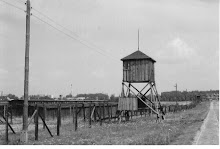The pie is a commonly used metaphor for describing the nation's economy. For example, we routinely hear or read about "getting a slice of the pie" to connote an individual's or a delineated group's share of the economic goods.
By paying close attention to how the metaphor is applied one gains a sense for the underlying economic politics of the user of the metaphor. Notice, for instance, that modern liberals will almost exclusively refer to adjusting the size of the pie slices, as in "the working class slice has grown thinner while the wealthy have a larger slice". Perversely, they want you to believe that having a larger slice of a shrinking pie is a good thing.
In contrast, those that focus on the free market engines of economic expansion speak about the policies and approaches that will make the pie bigger. "We need more ideas and energy centered on the opportunity to grow, on abundance, on new markets, on a willingness to improve and compete, on more economic freedom in the hands of the creators of wealth rather than in the undeserving hands of the distributors and self-proclaimed adjudicators of wealth".
This "unfair slice" argument is the modern liberal's springboard for their banal liturgy about protectionist measures, class-warfare and all the other divisive stuff that constitutes the politics of envy and resentment. We need less focus on mealy-mouthed and corner-of-the-eye glances on what your neighbor has that you don't. We need less of this because it is the path of ruin, the path of losers.
There is an old Russian fable about two brothers. Only one brother owned a sheep. The sheepless brother was hopelessly consumed with envy. Then one day, this brother that did not possess a sheep found a lamp, rubbed it and out came a genie willing to grant one wish. The wish? Well, the brother sneered and wished that the genie kill the sheep of his brother.


No comments:
Post a Comment